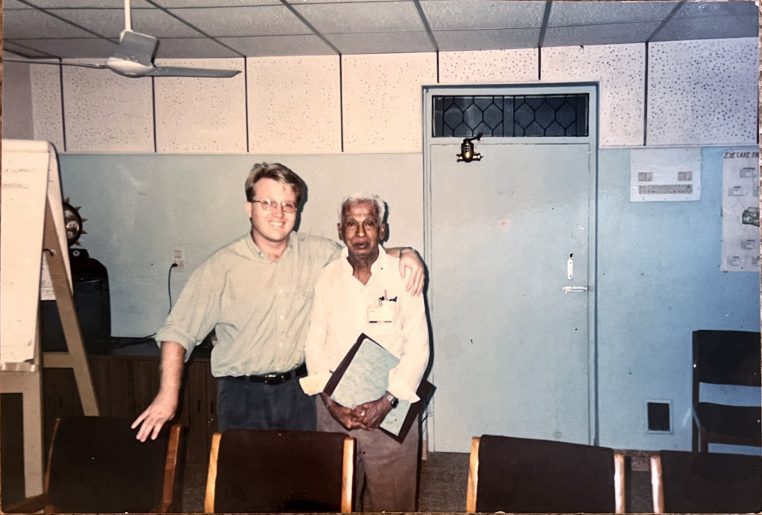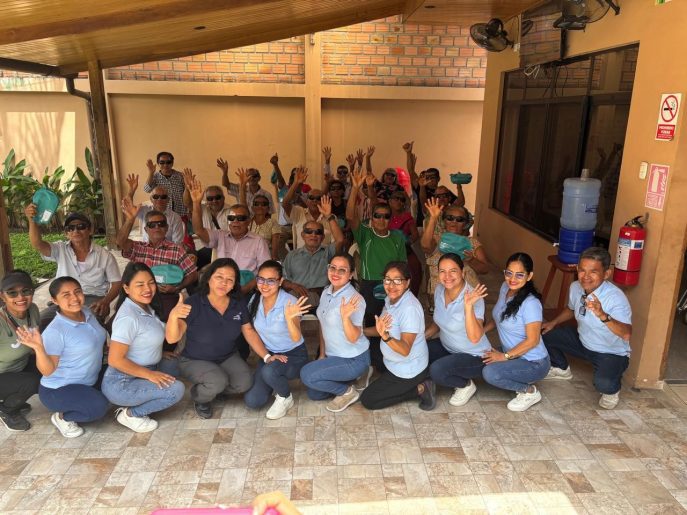Originally published by the American Academy of Ophthalmology
Written By: Reena Mukamal
Reviewed By: Sonal S Tuli MD
Edited By: Anni Delfaro
Experts say guarding your eyes — as well as your hands and mouth — can slow the spread of coronavirus. Here’s why it’s important to protect your eyes during the coronavirus disease 2019 (COVID-19) pandemic, and five ways you can help yourself and others.
Coronavirus Can Spread Through the Eyes
Coronavirus causes mild to severe respiratory illness. Symptoms such as fever, cough and shortness of breath can show up 2 to 14 days after a person is exposed. People with severe infections can develop pneumonia and die from complications of the illness.
Limiting eye exposure can help. Here’s why:
- When a sick person coughs or talks, virus particles can spray from their mouth or nose into another person’s face. You’re most likely to inhale these droplets through your mouth or nose, but they can also enter through your eyes.
- People who have coronavirus can also spread the illness through their tears. Touching tears or a surface where tears have landed can be another portal to infection.
- You can also become infected by touching something that has the virus on it — like a table or doorknob — and then touching your eyes.
Coronavirus May Cause Pink Eye — But it’s Rare
If you see someone with pink eye, don’t panic. It doesn’t mean that person is infected with coronavirus. But health officials believe viral pink eye, or conjunctivitis, develops in about 1% to 3% of people with coronavirus. The virus can spread by touching discharge from an infected person’s eyes.
How to Help Yourself and Others:
“It’s important to remember that although there is a lot of concern about coronavirus, common sense precautions can significantly reduce your risk of getting infected. So wash your hands a lot, follow good contact lens hygiene and avoid touching or rubbing your nose, mouth and especially your eyes,” says ophthalmologist Sonal Tuli, MD, a spokesperson for the American Academy of Ophthalmology.
1. Expect changes to your routine eye exam and procedures.
If you’re due for an eye exam, you may be nervous about going to the doctor’s office. Ophthalmologists sit face-to-face with many patients daily. During a slit-lamp exam, the doctor’s face will be just a few inches away from yours. But rest assured that ophthalmologists, like all medical professionals, follow strict hygiene and disinfection guidelines.
Here’s what you might expect:
- The clinic may ask you to wait outside, or in your car, instead of in the normal waiting room. This is to protect you, the other patients and the office staff from germs that could circulate in crowded lobby areas.
- Don’t be surprised if non-emergency surgeries and procedures are postponed. If coronavirus is present in your community, even minor eye procedures could expose you or your doctor to the virus. Also, doctors will need to save the surgical supplies, including masks and face shields, for emergency situations.
- Your eye doctor may use a special plastic barrier called a slit-lamp breath shield (pictured above, courtesy of Eric Grieser, MD). This helps block the exchange of breath between patient and doctor.
- Your ophthalmologist may also wear a mask with a plastic shield over their eyes.
- Your physician may wait until after your slit-lamp eye exam to talk with you or answer questions.
Eye doctors recommend the following precautions:
- If you have a cough or a fever, it’s essential to call your doctor’s office ahead of time and let them know. If your visit is not an emergency, they may ask you to stay home.
- If you arrive sick, your doctor may ask you to wear a protective covering or mask, and to wait in a special room so that you won’t expose other patients.
- If you anticipate a cough or sneeze during your exam, move back from the microscope and cover your face with a tissue. Wash your hands with soap and water as soon as you can.
2. If you wear contact lenses, switch to glasses for a while.
Contact lens wearers touch their eyes more than the average person. “Consider wearing glasses more often, especially if you tend to touch your eyes a lot when your contacts are in. Substituting glasses for lenses can decrease irritation and force you to pause before touching your eye,” Dr. Tuli advises. If you continue wearing contact lenses, follow these hygiene tips to limit your chances of infection.
3. Wearing glasses may add a layer of protection.
Corrective lenses or sunglasses can shield your eyes from infected respiratory droplets. But they don’t provide 100% security. The virus can still reach your eyes from the exposed sides, tops and bottoms of your glasses. If you’re caring for a sick patient or potentially exposed person, safety goggles may offer a stronger defense.
4. Stock up on eye medicine prescriptions if you can.
Experts advise patients to stock up on critical medications, so that you’ll have enough to get by if you are quarantined or if supplies become limited during an outbreak. But this may not be possible for everyone. If your insurance allows you to get more than 1 month of essential eye medicine, such as glaucoma drops, you should do so. Some insurers will approve a 3-month supply of medication in times of natural disaster. Ask your pharmacist or ophthalmologist for help if you have trouble getting approval from your insurance company. And as always, request a refill as soon as you’re due. Don’t wait until the last minute to contact your pharmacy.
5. Avoid rubbing your eyes.
We all do it. While it can be hard to break this natural habit, doing so will lower your risk of infection. If you feel an urge to itch or rub your eye or even to adjust your glasses, use a tissue instead of your fingers. Dry eyes can lead to more rubbing, so consider adding moisturizing drops to your eye routine. If you must touch your eyes for any reason — even to administer eye medicine — wash your hands first with soap and water for at least 20 seconds.
And don’t forget …
The Centers for Disease Control and Prevention (CDC) offers general guidelines for preventing the spread of coronavirus and protecting your health:
- Wash your hands often with soap and water for at least 20 seconds.
- You should especially wash your hands before eating, after using the restroom, sneezing, coughing or blowing your nose.
- If you can’t get to a sink, use a hand sanitizer that has at least 60% alcohol.
- Avoid touching your face — particularly your eyes, nose, and mouth.
- If you cough or sneeze, cover your face with your elbow or a tissue. If you use a tissue, throw it away promptly. Then go wash your hands.
- Avoid close contact with sick people. If you think someone has a respiratory infection, it’s safest to stay 6 feet away.
- Stay home when you are sick.
- Regularly disinfect commonly touched surfaces and items in your house, such as doorknobs and counter tops.



